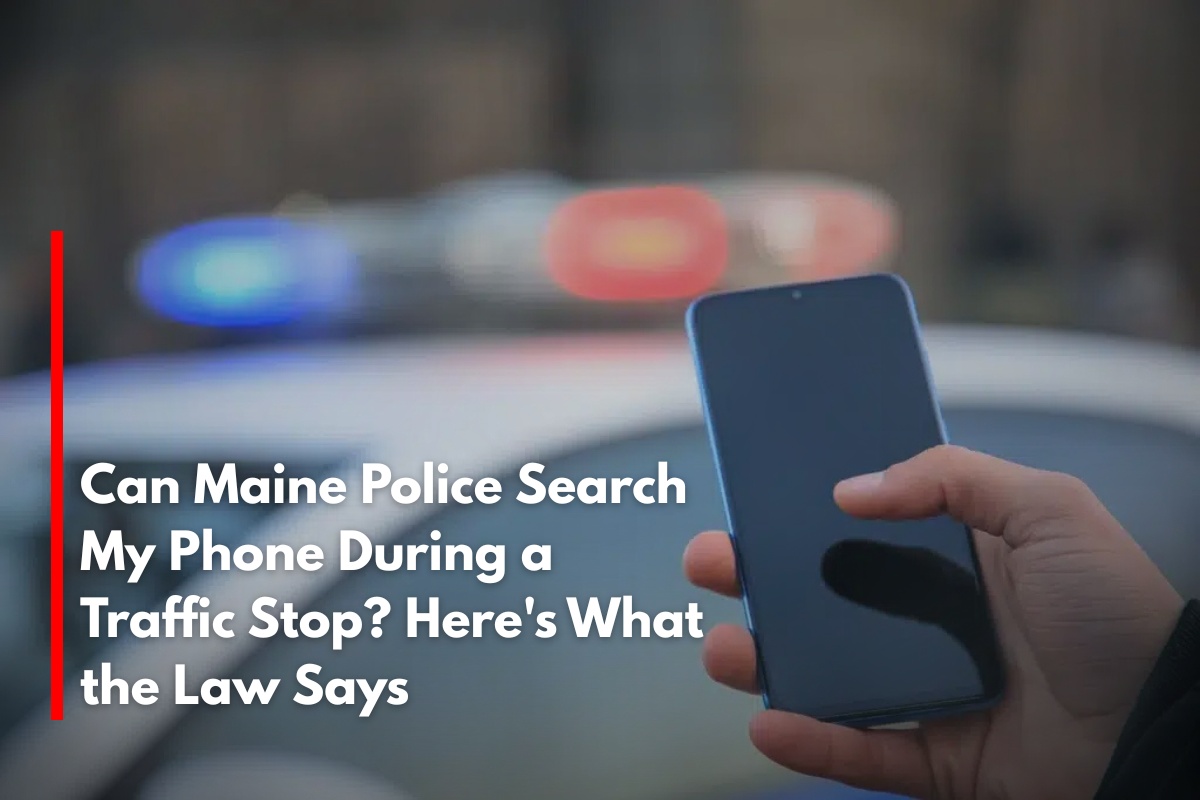In Maine, police officers generally cannot search your phone during a traffic stop without a warrant. The law and constitutional protections converge to protect your digital privacy, reflecting the broader application of the Fourth Amendment, which guards against unreasonable searches and seizures.
What Does the Law Say About Phone Searches in Maine?
Warrant Requirement: Police need a search warrant to access the contents of your cell phone during a traffic stop or any other situation, except in very limited circumstances. Mere possession or seizing of the phone at the scene is allowed if there is reasonable suspicion of criminal activity, but actually searching the phone’s data requires judicial authorization.
Consent Exception: If you voluntarily give police consent to search your phone, a warrant is not required. However, you have the right to refuse this consent, and it’s generally advised not to agree to a search without legal counsel present.
Exigent Circumstances: There are rare exceptions where police can search without a warrant, such as if they believe that evidence on the phone might be lost or destroyed (e.g., remote wiping) or if there is an imminent danger or emergency. These exceptions are carefully scrutinized by courts and do not broadly allow warrantless phone searches.
Stop and Search Rules at Traffic Stops
Police must have reasonable suspicion to initiate a traffic stop, such as observing a traffic violation or erratic driving.
During the stop, you have the right to refuse consent to any search of your person, vehicle, or phone unless police have a warrant or probable cause.
Police may seize your phone if they have reasonable suspicion or it is incident to an arrest, but accessing the phone’s data requires a warrant.
Refusing to unlock your phone or provide passcodes is within your rights; police cannot force you to unlock your phone biometrically or otherwise without a warrant.
Maine’s Privacy and Hands-Free Laws Impact
Maine’s hands-free law prohibits holding or manipulating a phone while driving, which can justify a traffic stop if violated. However, stopping you does not automatically give police the right to search your phone.
Recent Maine privacy laws protect consumer information and reflect a growing emphasis on digital data protection, underscoring the importance of warrants for accessing phone data.
What Should You Do If Pulled Over?
Remain calm and polite. You have the right to remain silent and the right to refuse a search without a warrant or your consent.
Ask if you are free to leave if not under arrest.
Do not consent to a phone search or provide your password.
If your phone is seized or searched without a warrant or consent, inform your attorney as there may be grounds to suppress any evidence obtained illegally.
While Maine police can stop you for phone-related driving violations, searching your phone during a traffic stop requires a warrant unless you give consent or there are exigent circumstances. Refusal to consent to a search is your right under the Fourth Amendment, and police must respect this to avoid unlawful searches which can be challenged in court.
Protecting your phone’s privacy during a traffic stop is crucial, given the extensive personal information it contains. Understanding your rights helps ensure that your digital privacy is upheld in Maine.
If you feel your rights were violated during a traffic stop or phone search, consult with a criminal defense lawyer experienced in Maine law immediately.
Sources
[1] https://legislature.maine.gov/statutes/29-a/title29-Asec105.html
[2] https://www.notguiltyattorneys.com/search-and-seizure-and-illegal-traffic-stops-in-maine/
[3] https://www.webblawmaine.com/blog/search-and-seizure-illegal-traffic-stop-4th-amendment-me/
[4] https://www.mainelegislature.org/legis/bills/bills_126th/chapters/PUBLIC409.asp
[5] https://www.govtech.com/public-safety/can-police-search-your-phone-during-a-traffic-stop











